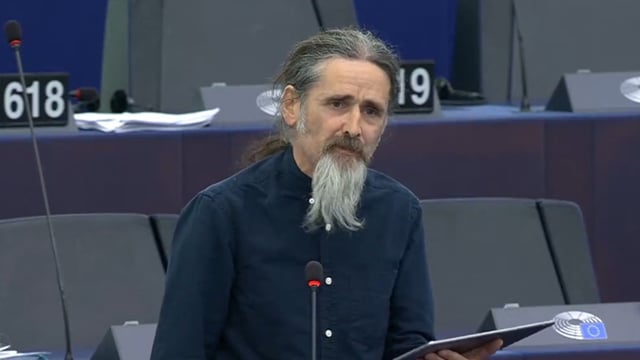Without funding EU risks falling 'dangerously short' on targets - environment group
The European Environmental Bureau (EEB), alongside other environmental organisations, has warned that without dedicated CAP funding and stronger safeguards, the EU risks falling "dangerously short" on climate and biodiversity targets.
It also believes that without a budget, the EU risks creating a fragmented, "unlevel playing field" for farmers across Europe, that jeopardises the resilience of agricultural land.
Senior policy officer for agriculture at the EEB, Theo Paquet said: "This proposal effectively hands members states a blank cheque to rewrite the rules, whilst failing to ringfence a single euro for achieving environmental objectives - a move that will trigger a race to the bottom and leave farmers alone in the fight against the climate crisis.
"The only silver lining is the long-overdue reform of 'income support' payments, which would prioritise farmers in need of support, rather than rewarding large farms based on size alone," Paquet added.
The EEB said that it finds the lack of dedicated financing for achieving environmental measures in the EU budget "unacceptable".
It also believes that, following "recent waves of simplification'" the proposal grants EU member states "excessive discretion" in defining the environmental conditions farmers must meet to receive subsidies.
According to the EEB, the lack of "meaningful targets", or means to track performance, also grants EU countries huge flexibility to use public funds without the guarantee that they will deliver real results.
It believes that the maintenance of "harmful subsidies in the form of 'coupled support'" is due to the lack of meaningful environmental safeguards attached to the measures.
However, the EEB said that it welcomes the mandatory capping and gradual reduction in area-based income support.
It claims, that if maintained after negotiations in the parliament, mandatory capping would "finally" initiate a move away from the current system, that the EEB claims rewards farms based on their size alone.
Finally, the EEB said that it supports the streamlining of of green farm payments and the introduction of new “transition actions” to support farms based on an approved transition plan.





